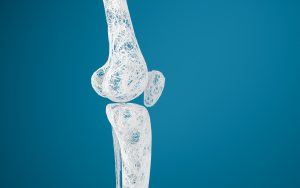 It’s a good thing you have bones. Without them, your body wouldn’t have access to valuable calcium stores to keep it functional. You’d also collapse.
It’s a good thing you have bones. Without them, your body wouldn’t have access to valuable calcium stores to keep it functional. You’d also collapse.
Bones are very easy to take for granted. They’ve always been there, holding you up and doing more things than you could likely imagine. But believe it or not, strong, healthy bones take work. And as you get older, they need more than they ever have.
Advertisement
Diet and nutrition play a major role in bone health. In fact, what you eat plays a direct role in how healthy your bones are and the likelihood of bone-related conditions like osteoporosis and osteopenia.
The primary nutrients involved in bone health are calcium, vitamin D, protein, magnesium, phosphorus and potassium. If you eat plenty of fruit, vegetables, legumes, nuts, seeds, and lean protein, you’re getting most of what you need. However, as you age, you may need to put in the extra effort.
Here’s what you need to keep your bones healthy and functioning well.
Calcium: Calcium is the main ingredient in bone, but it also plays an essential role in cell, muscle, heart, and nerve function. You also don’t make your own calcium; you get it from your diet or taking supplements.
But when good levels get low, all of those other organs and cells draw on calcium from your bones to function properly. If it’s not replenished, bones can get weak, and problems arise.
Taking a low-dose calcium supplement can be useful for people over 51. Avoid high-dose supplements because they may increase the risk for several undesirable health conditions.
Vitamin D: Without enough vitamin D, you can’t adequately absorb calcium. You make your own when sunlight hits your skin, but that can be risky business. Also, some people don’t live in sunny environments for months on end.
Advertisement
It’s available in a few foods and only in very small amounts, so supplementation is the best option. 600-800 IU per day of vitamin D3 is sufficient for most people.
Protein: Proteins are the building blocks of life and act as scaffolding for bones, making up a large portion of their mass and volume. Try and get some protein at every meal, and aim for a daily total based on your weight.
To find out how much protein you should eat, multiply your weight by 0.36. So, if you weigh 155 pounds, you should be eating at least 56 grams of protein per day (155 x 0.36 = 66.8).
